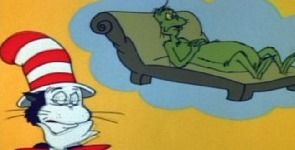Dukasaur wrote:First, I believe that pain and suffering are hard-coded into the fabric of the universe, and while you might alleviate suffering at point A, it will be compensated at point B. We live in a universe where the entropy of a system always increase. This makes it literally impossible to live without killing or to create without destroying. We make our lives possible by capturing the decay products from the death of cows; the cows live by capturing the decay products from the death of plants; the plants live by capturing the decay products from the death of our star; our star was born by capturing the decay products from other, older and more beautiful stars of long ago. At each step a smaller and uglier thing is kept alive by the death of something bigger and grander. When we die we will feed slimy little fungi. Death always outpaces life, destruction always outpaces creation, in the end evil will always triumph. That's the big picture.
Death and decay are not the same things as pain and suffering. Many organisms live and die, but not all of them suffer. I am not trying to eliminate death or destruction from our world, but I am trying to redistribute it towards the organisms that have no interest in living.
Second, we address the point of whether farming for meat increases net suffering. I won't pretend to know the answer. My instinctive suspicion is "no." Animals in the wild don't spend their time frolicking about in Disney fashion. Most animals die prematurely. They starve to death, they freeze to death, they are torn apart by predators, they suffer diseases and there's nobody around to feed them antibiotics. A cow lives a demeaning and unpleasant life on a farm, and then it goes to a painful and undignified end, but I'm not sure if this is necessarily worse than what its life would be like in the wild. While neuroscientists are close to an empirical definition of suffering, I think they're still a long ways away from being able to quantitatively assess suffering on a mass scale.
There's a fairly obvious point you're missing here, which is that none of these farm animals would have existed in the first place had we not bred them to be our food. There would have been no "life in the wild," nothing to suffer from at all. We're breeding beings into existence purposefully for the existence of eating them, which makes what happens to them our responsibility. So I deny the premise of your thought experiment, because it assumes that we need to keep on breeding large quantities of cows, pigs, and chickens when in fact that is precisely what I am objecting to.
Furthermore, I think vegetarians and vegans are largely in a state of denial about the suffering caused by the growing of crops. Rabbits have to be killed so that they don't eat your carrots, deer have to be killed so that they don't eat your corn. Even if they are not actually shot or poisoned but just kept out by fences, they still die a slow death by starvation, standing outside on the indigestible sagebrush and looking at the delicious crop of corn inside that you won't let them touch.
State of denial? Perhaps. But it's not a relevant argument. There are far, far more crops grown for the purpose of feeding livestock than there ever would be if we ate only plant-based products. So the net suffering of eating animals is not only from the animals themselves, but also the immensely larger number of animals that had to indirectly die to feed those animals so we could later eat them.
Third, about the issue of whether I personally, could do anything to change this. I believe the economics is such that I personally could not. If I choose to deprive myself of the pleasure of eating meat, I would stop bidding up the price of meat in the marketplace. The price would go down, those people who continued to eat meat would get it cheaper, and they would therefore eat more of it. That is the macroeconomic view. The only way that not eating meat would reduce the consumption of meat would be if it was such a large reduction in demand that even at the reduced price the remaining meat-eaters could not absorb the excess.
The benefits are only wiped out if there is a full rebound effect, which I suspect does not exist on this issue. But even if it does, could you imagine making the same argument about reaping the benefits of slave labor in the 1850s? Even though I am a utilitarian and so I don't think of a vegan diet as the moral baseline, there's still something icky in a deontological sense about participating in this murderous and torturous process.
I am guessing that there are two actual paths to animal liberation; either meat, eggs, and dairy alternatives get cheaper than the animal products (which is already happening in some sectors), or there is a general animal liberation movement that demands much more than individual consumer changes. I think it is that latter one that is probably ethically demanded of all of us. I think that everyone here would hope that they would have been an abolitionist in the mid-1800s. That time is upon us again, to decide which side of history we want to be on.
Fourth, and finally, about your idea that if we can't change the world with moral suasion or economic boycott, it can be done through law enforcement.
I didn't make that argument.





























































